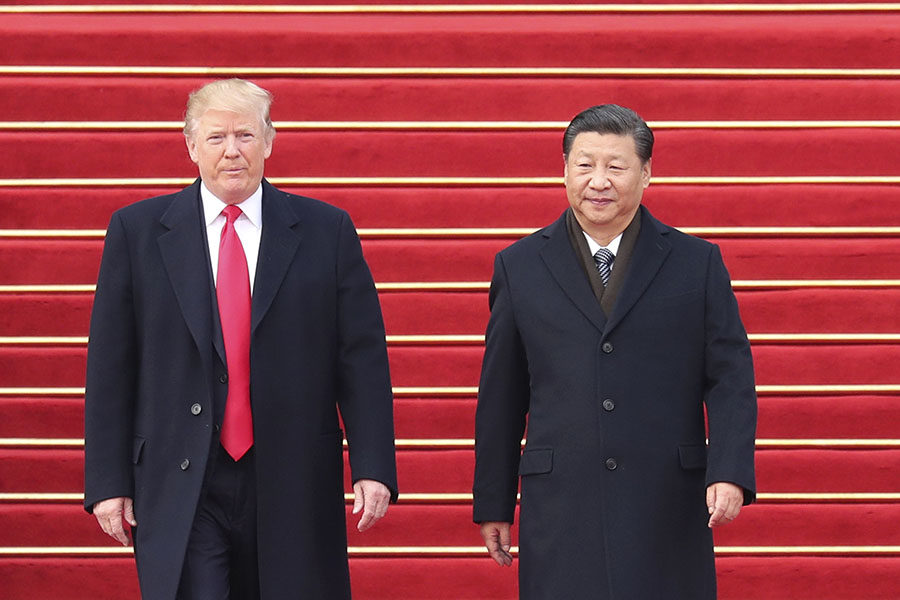Trump’s Tariffs Raise Questions
Criticism has fallen against President Donald Trump’s decision to impose a tariff on foreign steel and aluminum manufacturing.
PHOTO | Tribune News Service
Chinese President Xi Jinping, right, holds a grand ceremony to welcome U.S. President Donald Trump at the square outside the east gate of the Great Hall of the People in Beijing, capital of China, Nov. 9, 2017.
President Donald Trump announced plans to impose a 25 percent tariff on steel imports and a 10 percent tariff on aluminum imports March 1 which has led many economists to question the future of how this move will affect the economy. Following this decision, the Dow fell more than 500 points, according to Vox.
These tariffs likely aim to help American manufacturing companies reduce their reliance on foreign sources of steel and aluminum from countries like China, according to USA Today.
“I think if the idea is to benefit the American worker, there is a strong argument being made that it actually will not,” history teacher Mary Murphy said. “It will affect more jobs negatively in aluminum and steel importing companies than it will save jobs in U.S. manufacturing jobs. That is the fear.”
Last year, China produced 49 percent of the world’s global steel supply, according to CNN. This steel is then imported to the United States to be used in building infrastructure including buildings and pipelines.
However, when first announced, this tariff applied to every country in the world, not just China. This has led some to criticize the decision, citing a possible trade war. A trade war is an economic term which describes a situation in which countries place tariffs on one another for the purpose of harming economic growth.
“Trade wars are never a good idea. Other countries can hit our economy now with counter-tariffs and it could cause our economy to tank,” senior Gillian Cruz said. “I feel like Trump isn’t processing that you can’t run a company and a country the same way.”
Because of this tariff, American companies will now be forced to produce their own steel and aluminum, materials which are used in everyday objects like soda cans, cars and building materials, according to USA Today. These products are expected to rise in consumer sales prices as a result of the tariffs.
“Trump’s goal is to increase domestic production of steel and aluminum but I feel like it will actually harm domestic companies that rely on foreign goods at a cheap price,” senior Sarah Hogan said.
In exit polls conducted by the New York Times after the presidential election of 2016, 65 percent of citizens who voted for Trump agreed that trade with other countries negatively affects American workers. President Trump advertised his plans to place tariffs like these recent ones on the campaign trail, according to Murphy.
“If this is a way of just trying to make good on a campaign promise, he (Trump) needs to consider the broader implications,” Murphy said. “Republicans in Congress should not be surprised with this move.”



